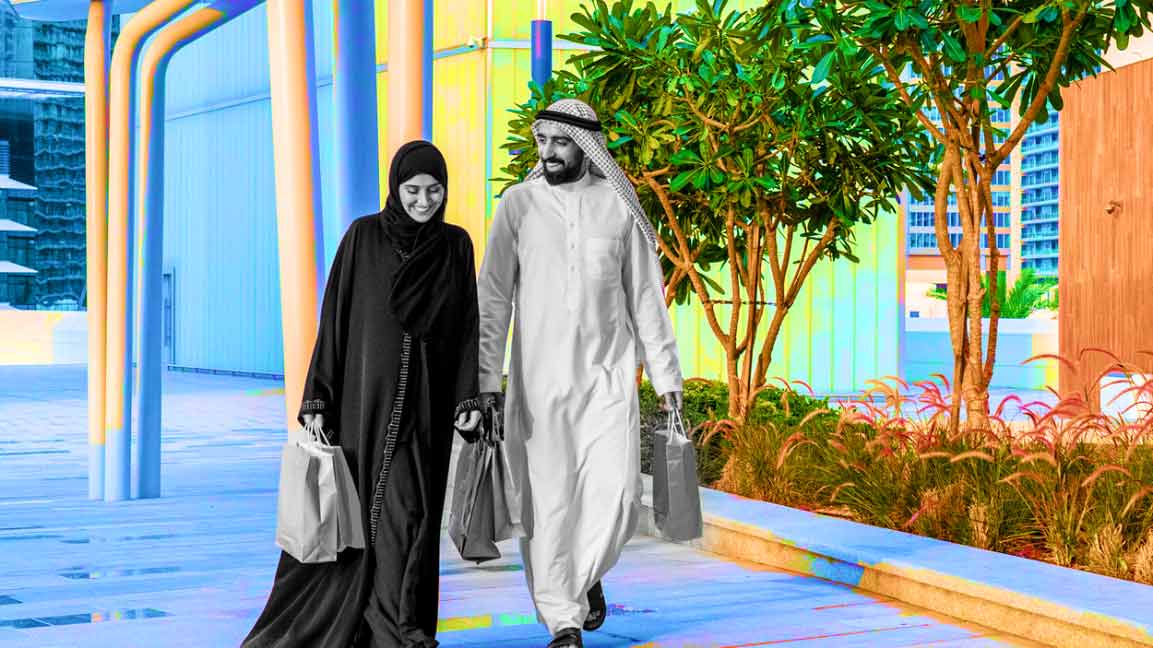- | 12:00 pm
Study reveals strong optimism among Saudi consumers, outpacing global average
71% of the population is optimistic about the future, and 64% report increased satisfaction with their current life circumstances.

Now accepting applications for Fast Company Middle East’s Best Workplaces For Women 2023. Click here to register.
The Saudi Arabian economy is transforming, propelled by Vision 2030—a comprehensive plan for economic diversification and sustainable development. As the economy thrives, the confidence of Saudi consumers is also on the rise.
A wave of optimism is sweeping over the Kingdom of Saudi Arabia, fueled by the positive sentiments of its consumers. A recent study has revealed that 71% of Saudi consumers exude confidence in the future, surpassing the global average of 43%.
The Toluna Global Consumer Barometer, which spans 19 global markets, delves into the minds of consumers in the Kingdom of Saudi Arabia, revealing insights into their attitudes, preferences, and distinguishing factors compared to the rest of the world.
The survey findings highlight that 64% of residents in the Kingdom of Saudi Arabia expressed elevated satisfaction with their current lives and harbored brighter hopes for the future. This figure surpasses the global average of 45%.
Nevertheless, a significant 25% voice worries about personal financial security, a sentiment linked to ongoing global and economic conditions.
Georges Akkaoui, enterprise account director & office leader MEA at Toluna, shared his insights, stating, “These findings reflect the current economic sentiment and consumer behavior in the KSA.
“Amidst positive signals, consumers are seeking value and reliability in their choices. Brands prioritizing quality, affordability, and sustainability will resonate most with today’s savvy shoppers.”
Amid uncertainties, Saudis are taking a proactive approach to financial planning. A significant 29% plan to reduce spending on traditional books and magazines, recognizing the wealth of available online resources.
Likewise, 28% aim to trim luxury expenses, while 24% will tighten their entertainment and subscription budgets. 22% opt for fewer dining-out experiences, 22% will dial back on leisure pursuits and hobbies, 19% intend to cut vacation expenses, and 20% will delay buying new cars, all in a bid to navigate these economic currents.
The study also shines a light on the future shopping habits of KSA consumers, specifically in the grocery department, over the next three months. Among the key factors guiding their choices are prices, health considerations, product availability, and the quest for top-notch quality.
45% of consumers intend to cut down on unnecessary spending, while 39% are poised to compare online and offline prices.
A fascinating array of strategies emerges in this retail landscape. 45% of shoppers aim to trim unnecessary expenses, while 39% are gearing up to play the price-comparison game across both online and offline platforms.
Some individuals plan to increase their shopping frequency to minimize waste while capitalizing on better deals (31%). Others seek value by exploring multiple stores (28%) or opting for bulk purchases to reduce the number of trips (30%). Additionally, there are those embracing more budget-friendly brands (26%) and fine-tuning snack choices (28%).































